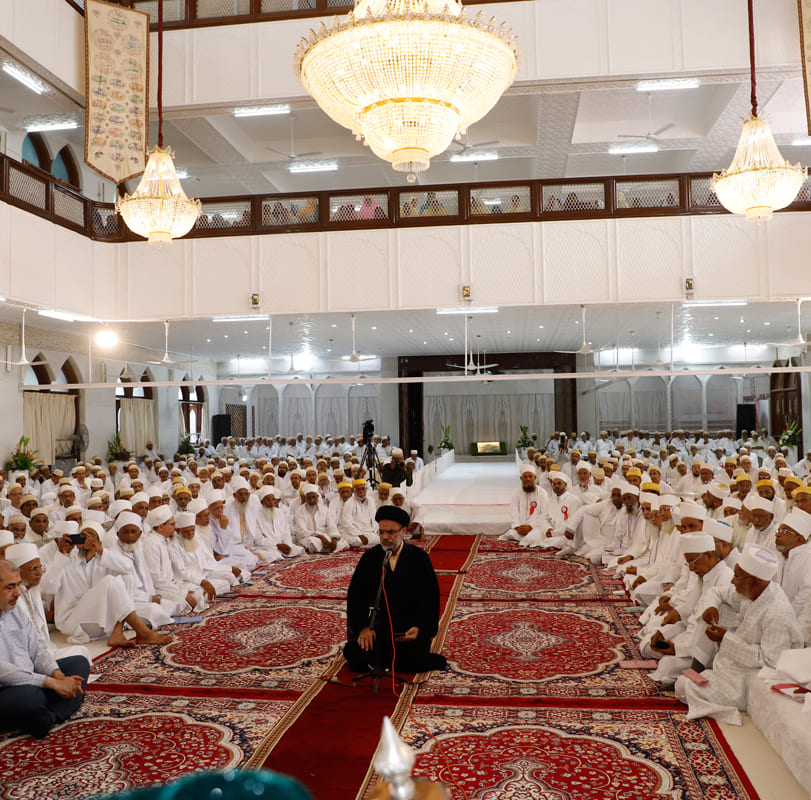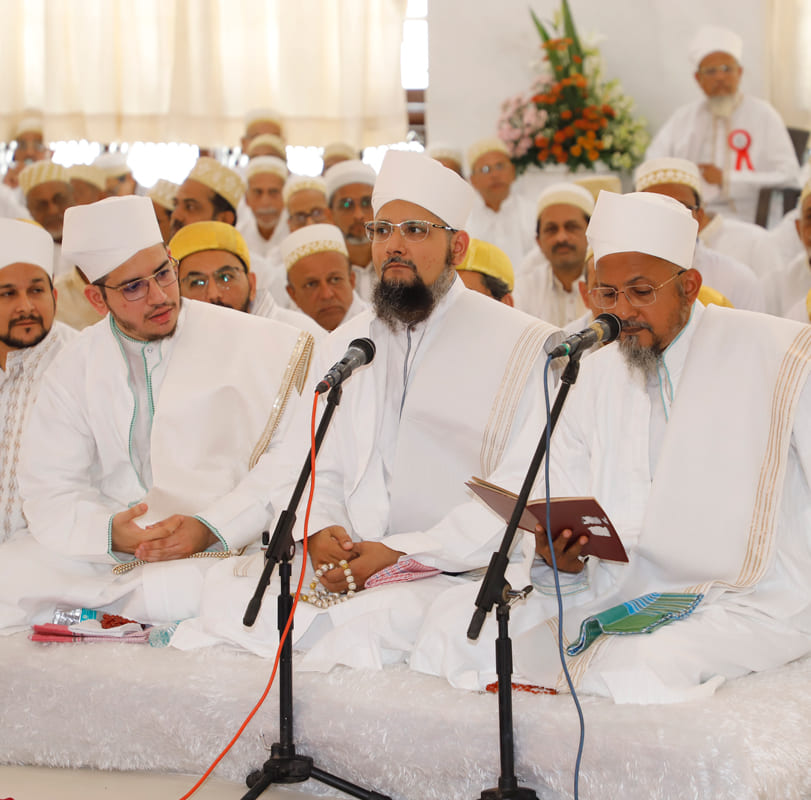
Rooted in timeless teachings, our approach values humility, compassion, and sincere dedication to faith. Guided by our spiritual leaders, we foster genuine connections that honor kindness and collaboration.
Our mission is to live our faith’s values, promoting peace and respect. We aim to positively impact society, preserving our spiritual heritage and encouraging an open-minded, harmonious community.
The Alavi Bohras are Isma'ilis who follow the spiritual succession of the 6th Faatemi Imaam Isma'il, son of Imaam Ja'far us-Saadiq, after a split in mainstream Shi'a. They became Musta'alavis under Imaam Mustansir Billah, supporting the succession of Imaam Musta'ali. Following Imaam Taiyeb's seclusion in 1132 AD due to external threats, the Alavi Bohras continued their spiritual journey under the leadership of missionaries (Du’aat-e-Mutlaqeen) from Yaman. They believe the succession of Imaam Taiyeb’s progeny will continue until the Day of Judgement, preserving their faith and heritage.


The Alavi Bohras are Isma'ilis who follow the spiritual succession of the 6th Faatemi Imaam Isma'il, son of Imaam Ja'far us-Saadiq, after a split in mainstream Shi'a. They became Musta'alavis under Imaam Mustansir Billah, supporting the succession of Imaam Musta'ali. Following Imaam Taiyeb's seclusion in 1132 AD due to external threats, the Alavi Bohras continued their spiritual journey under the leadership of missionaries (Du’aat-e-Mutlaqeen) from Yaman. They believe the succession of Imaam Taiyeb’s progeny will continue until the Day of Judgement, preserving their faith and heritage.
Subsequently, split occurred at various instances in the mainstream Bohra community regarding the spiritual appointment (Nass) in the succession of Da’i-e-Mutlaq in Gujarat (Ahmedabad) between 825-1050 AH/1422-1640 AD. Two major splits during this period resulted in the formation of three major groups of Bohra community – Alavis, Dawoodis and Sulaymaanis. The tradition (sunnat) of the manifestation and the appointment of a Da’i-e-Mutlaq known as the Propagation of “Nass” is solely carried out by a former Da’i himself. Among Bohras, Alavis are the smallest minority who has independently survived all the vicissitudes of time. They believe in the Qur’anic Verse that, “On the path of truth, minority always win.”
Alavi Bohras, who are mainly traders, are peace-loving and harmonious people. The word ‘bohra or vohra or Vohorwu or Vyavahar' itself indicates maintaining relations and is derived from the Gujarati word ‘vohorvu’ or ‘vyavahar’, which means "to trade". Secondly its name reflects the characteristic of "al-Jamaa'at ul-Baaherah" meaning the extraordinary brilliant community with full of life and love. Their cultural and social upbringing is such that the values of peace and prosperity are in their blood and they do not believe in social discord or religious conflicts. Some of the groups or clans of Sunnis in Gujarat who also are traders and do not belong to the mainstream Bohras have adopted the name of Vohra or Vora, owing to the fame and respect of the name. But they never followed the basic doctrines and customs of the Isma'ili-Taiyebi Bohras. The early Indian converts of the 11th century AD during the reign of 18th Faatemi Imaam Mustansir (as) comprised a single group of Isma'ili Bohras owing allegiance to the missionaries (du'aat ul-balaagh) who conveyed spiritual orders of manifest Imaam (imaam-e-zaahir) to common believers in Yaman.
This statement encapsulates the Alavi Bohra belief that true faith transcends rituals and becomes a way of life. Guided by purpose and integrity, the community embodies its values in actions, fostering a legacy of spiritual depth, compassion, and commitment to peace. Through every interaction and endeavor, Alavi Bohras strive to reflect their faith’s principles, creating harmony within and beyond their community as a testament to their enduring values.
 Sa'eed ul Khayr Bhaisaheb
From the Alvi Bohra Community
Sa'eed ul Khayr Bhaisaheb
From the Alvi Bohra Community
